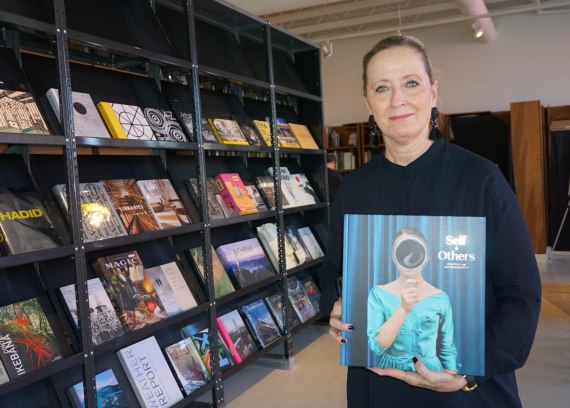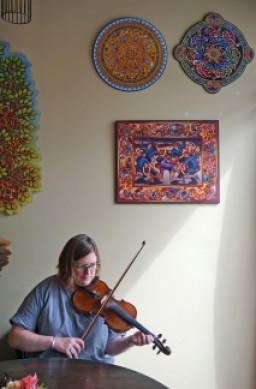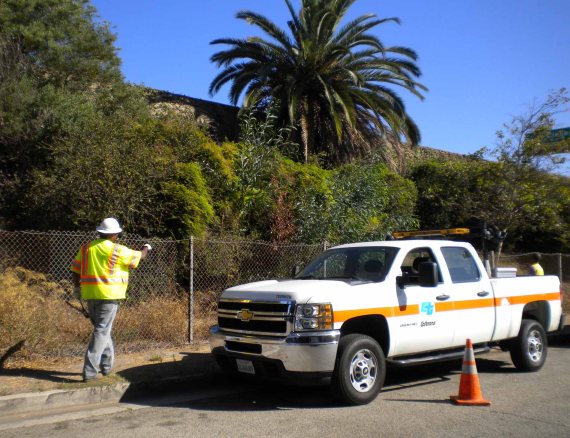
Matilda De Angelis
The Law According to Lidia Poët is an Italian television series streaming on Netflix inspired by the true story of the first female lawyer in Italy. Set in the 1880s in the regal city of Turin in the Piedmont region, that was capital of the Kingdom of Italy from 1861 to 1864, each of the six episodes deals with a fictional murder mystery, brilliantly solved by this fearless young woman, who offers legal representation to the person unjustly accused of the crime and conducts daring investigations to prove their innocence and discover the real culprit.
 Despite having been admitted to the bar association, after earning a law degree, Lidia (Matilda De Angelis) is unfairly disbarred and banned from the courtroom, simply because this profession was not deemed suited for a woman at that time in history. She is forced to put aside her pride and ask for her older brother’s help, Enrico (Pierluigi Pasino), since he is also a lawyer, starts working as his assistant, and, short of funds, moves back into their family home, where Enrico lives his wife Teresa (Sara Lazzaro), their teenage daughter Marianne (Sinead Thornhill) and his wife’s brother Jacopo (Eduardo Scarpetta), a journalist.
Despite having been admitted to the bar association, after earning a law degree, Lidia (Matilda De Angelis) is unfairly disbarred and banned from the courtroom, simply because this profession was not deemed suited for a woman at that time in history. She is forced to put aside her pride and ask for her older brother’s help, Enrico (Pierluigi Pasino), since he is also a lawyer, starts working as his assistant, and, short of funds, moves back into their family home, where Enrico lives his wife Teresa (Sara Lazzaro), their teenage daughter Marianne (Sinead Thornhill) and his wife’s brother Jacopo (Eduardo Scarpetta), a journalist.

Sinead Thornhill, Eduardo Scarpetta, Matilda De Angelis, Pier Luigi Pasino, Sara Lazzaro
In real life Lidia Poët, born in 1855, received her degree in Jurisprudence from the University of Turin’s law school in 1881 with a thesis on the condition of women in society and the right to vote for women, in 1883 she brilliantly passed the bar exam after two years of legal internship. Italy’s Attorney General entered a complaint with Turin’s Court of Appeal and three months later her license to practice law was revoked. She filed an appeal with the Supreme Court in Rome, which was rejected in 1884 with this justification among others, that, because of the deficiency of intellectual and physical strength in the female sex, women were excluded from holding public office. Most Italian newspapers and the public supported Lidia’s cause, and she dedicated her life to the movement fighting for women’s rights and gender equality, setting the agenda for the first Women Congress held in Rome in 1908. It was only forty years later in 1920 that Poët was readmitted to the bar at the age of 65 and allowed to legally practice her profession. She died in 1949, after witnessing Italian women earn the right to vote for the first time after the end of World War II, in the June 2, 1946 referendum to decide whether the country should remain a Kingdom or become a Republic.

Matilda De Angelis
Matilda De Angelis (born in Bologna on September 11, 1995) received critical praise for her performance in the movie Veloce come il vento (2016) directed by Matteo Rovere and starring Stefano Accorsi, played the murdered woman in the TV series The Undoing (2020) with Nicole Kidman and Hugh Grant. She said at the press presentation of La legge di Lidia Poët in Turin: “It was an enormous privilege for me to tell Lidia’s story. She made feminist history, and I am glad that we brought to light the life of a woman that is not too well-known. This series is a pretext to really get to know her in more historical depth; even if it’s a work of fiction and fantasy, that spans many genres including romance, it borrows elements from certain details of Poët’s life, born in Turin in 1855 in a family of lawyers. It’s very important to write this kind of story about gender inequality; we let our imagination and empathy fly and the result is a very well-written script. As an actress and as a woman I am flattered when I am given the opportunity to play a character like Lidia, intense and strong, with a big personality. I tried to give her as many facets as possible, make her determined and light at the same time. She is fallible and fragile and this is her most interesting trait.”

Sinead Thornhill, Matilda De Angelis
Producer-director Matteo Rovere introduced the series about Lidia Poët with this description: “It’s the story of an anti-conventional woman in the late 1800s, who shines for her talent, free spirit and personality. Her guiding principle is to be non-conformist, to think outside the box, to rebel against the dominant line of thought and the pre-existing system.”

Matilda De Angelis, Eduardo Scarpetta
This groundbreaking series is not only a celebration of the long-overdue emancipation of women, but cleverly explores historical aspects of turn-of-the-century Italian society such as opium addiction, prostitution, séances, anarchism, class differences, arranged marriages, forbidden lesbian relationships. It presents a heroine who is liberated and sexual, ahead of her time 140 years ago, but frustrated by her second-class position in society, fighting to affirm her right to work at the profession of her choice.

Read article as posted on Golden Globes website, in English and in Italian
P.S. Read about Clara Shortridge Foltz, first woman layer in California
Versione in italiano rimossa dal nuovo sito Golden Globes Novembre 2023
LA LEGGE DI LIDIA POÉT. LA PRIMA AVVOCATA D’ITALIA
Di Elisa Leonelli
La legge di Lidia Poët è una serie televisiva italiana in onda su Netflix ispirata alla storia vera della prima donna avvocato in Italia. Ambientata a fine Ottocento nella regale città di Torino in Piemonte, che era stata capitale del Regno d’Italia dal 1861 al 1864, ciascuno dei sei episodi tratta di un misterioso omicidio, brillantemente risolto da questa impavida giovane, che si offre di rappresentare come legale la persona ingiustamente accusata del delitto e svolge audaci indagini per dimostrare la loro innocenza e scoprire il vero colpevole.
Nonostante fosse stata ammessa all’albo degli avvocati, dopo essersi laureata in legge, Lidia (Matilda De Angelis) viene ingiustamente cancellata dall’albo e bandita dal tribunale, semplicemente perché questa professione non era considerata adatta per una donna in quel periodo storico. Si trova quindi costretta a mettere da parte l’orgoglio e chiedere l’aiuto del fratello maggiore, Enrico (Pierluigi Pasino), dato che anche lui fa l’avvocato, inizia a lavorare come sua assistente, e, squattrinata, si trasferisce nella casa di famiglia, dove Enrico abita con la moglie Teresa (Sara Lazzaro), la figlia adolescente Marianne (Sinead Thornhill) e il fratello della moglie (Eduardo Scarpetta), un giornalista.
Nella realtà Lidia Poët, nata nel 1855, si laureò in Giurisprudenza presso la facoltà di diritto della università di Torino nel 1881, con una tesi sulla condizione femminile nella società e sul diritto di voto per le donne, nel 1883 superò brillantemente l’esame di ammissione all’ordine degli avvocati, dopo due anni di praticantato. Il procuratore generale del Regno impugnò la decisione ricorrendo alla Corte d’Appello di Torino e tre mesi dopo le fu revocato il permesso di esercitare l’avvocatura. Lei presentò un ricorso alla Corte di Cassazione, che fu respinto nel 1884 con questa giustificazione fra le altre, che “la naturale riservatezza del sesso, la sua indole, la fisica cagionevolezza e la deficienza di adeguate forze intellettuali e morali, quali la fermezza, la severità, la costanza impediscono alle donne di occuparsi di affari pubblici”. La maggioranza dei quotidiani italiani e il pubblico sostennero la sua causa, e Lidia dedicò la sua vita al movimento per difendere i diritti della donna e la parità di genere, contribuendo al programma del Primo Congresso delle donne italiane tenutosi a Roma nel 1908. Morì nel 1949 dopo aver visto le donne conquistare il diritto di votare per la prima volta, dopo la fine della seconda guerra mondiale, nel referendum istituzionale del 2 giugno 1946, per decidere se il paese sarebbe rimasto una monarchia o diventato una repubblica.
Matilda De Angelis (nata a Bologna l’11 Settembre 1995) ricevette buone critiche per il suo ruolo nel film Veloce come il vento (2016) regia di Matteo Rovere con Stefano Accorsi, interpretò la donna assassinata nella serie televisiva The Undoing – Le verità non dette (2020) con Nicole Kidman e Hugh Grant. Ha dichiarato alla presentazione stampa di La legge di Lidia Poët a Torino: “«È stato un enorme privilegio per me poter raccontare la figura di Lidia, che ha fatto la storia del femminismo. Sono molto contenta che venga portata alla luce la vita di una donna ancora troppo poco conosciuta. Questa serie è un pretesto per conoscerla davvero, in maniera più approfondita e storica, anche se si tratta di un prodotto di finzione e di fantasia, che parte da alcuni dettagli della vita di Poët, e poi si allarga su molti generi, incluso il romance. È molto importante che vengano scritte storie come questa, sulla disparità di genere; abbiamo volato di immaginazione ed empatia, il risultato è una serie scritta molto bene. Da attrice, da donna, sono lusingata quando mi viene data la possibilità di interpretare personaggi come Lidia, pieno di carattere, di intensità e di forza. Ho cercato di darle più sfumature possibili, di renderla determinata e leggera allo stesso tempo, è una donna fallibile e fragile ed è proprio questo il suo tratto più interessante.”
Il regista e produttore Matteo Rovere ha detto per introdurre La legge di Lidia Poët: “È il racconto di una donna anticonvenzionale, nata nel tardo Ottocento, che già brilla per talento, spirito libero e personalità. Il suo credo è essere anticonformista, non adeguarsi alle opinioni comuni, aggirare la norma, pensare fuori dagli schemi, ribellarsi al pensiero dominante e al sistema preesistente.”
Questa serie innovatrice non è solo è un inno alla emancipazione delle donne, ma esplora anche astutamente aspetti storici della società di fine secolo come l’assuefazione all’oppio, le sedute spiritiche, gli anarchici, le differenze di classe, i matrimoni combinati, le relazioni lesbiche clandestine. Presenta una eroina liberata e sensuale, all’avanguardia 140 anni fa, ma frustrata dalla sua posizione subordinata nella società, che lotta per il suo diritto di lavorare nella professione di sua scelta.
 Ambientata a New York e in Italia nell’inverno del 1960-1961, Ripley è stata girata nell’incantevole paesino di Atrani sulla costa amalfitana, a Napoli, Roma, Palermo e Venezia, con attori italiani come Margherita Buy e Maurizio Lombardi che affiancano i protagonisti Andrew Scott (Tom Ripley), Johnny Flynn (Dickie Greenleaf), Dakota Fanning (Marge Sherwood).
Ambientata a New York e in Italia nell’inverno del 1960-1961, Ripley è stata girata nell’incantevole paesino di Atrani sulla costa amalfitana, a Napoli, Roma, Palermo e Venezia, con attori italiani come Margherita Buy e Maurizio Lombardi che affiancano i protagonisti Andrew Scott (Tom Ripley), Johnny Flynn (Dickie Greenleaf), Dakota Fanning (Marge Sherwood).





 Wilder was the subject of one of my first home photo layouts in 1976. In 1986 one of those photographs, reproduced in B&W, was on the cover of the ASMP (American Society of Magazine Photographers) newsletter featuring my portfolio.
Wilder was the subject of one of my first home photo layouts in 1976. In 1986 one of those photographs, reproduced in B&W, was on the cover of the ASMP (American Society of Magazine Photographers) newsletter featuring my portfolio.



 On the black side wall of Vardagen at 1301, I saw a color mural
On the black side wall of Vardagen at 1301, I saw a color mural And a BW mural by Skonks that reads: “VENICE. A nice place to die slow”
And a BW mural by Skonks that reads: “VENICE. A nice place to die slow”







 Dopo il debutto a Sundance nel 2023, questo piccolo film indipendente ha ricevuto ben cinque candidature ai Golden Globes da giornalisti internazionali, molti altri premi da varie organizzazioni di critici cinematografici, e due nomine agli Oscar.
Dopo il debutto a Sundance nel 2023, questo piccolo film indipendente ha ricevuto ben cinque candidature ai Golden Globes da giornalisti internazionali, molti altri premi da varie organizzazioni di critici cinematografici, e due nomine agli Oscar.
 Greta Lee
Greta Lee




 Payne ha scritto anche la sceneggiatura dei sui film, fra cui La storia di Ruth, donna americana (Citizen Ruth 1996), Election (1999), Paradiso amaro (The Descendants, 2011), Nebraska (2013), Downsizing-Vivere alla grande (2017), ma non in questo caso.
Payne ha scritto anche la sceneggiatura dei sui film, fra cui La storia di Ruth, donna americana (Citizen Ruth 1996), Election (1999), Paradiso amaro (The Descendants, 2011), Nebraska (2013), Downsizing-Vivere alla grande (2017), ma non in questo caso.

 Saltburn
Saltburn












































































 The
The  Inside the spacious remodeled lobby an expansive art installation of intricately woven red yarn titled “The Network” follows the visitors up the stairs that lead to the inner courtyard and the elevator to the third floor galleries. Artist Chiharu Shiota, born in Osaka, Tokyo in 1972, who lives and works in Berlin, Germany, was inspired by the belief that, according to Japanese mythology, an invisible red thread tied to a baby’s finger at birth binds them to a network of people who will play significant roles in their life.
Inside the spacious remodeled lobby an expansive art installation of intricately woven red yarn titled “The Network” follows the visitors up the stairs that lead to the inner courtyard and the elevator to the third floor galleries. Artist Chiharu Shiota, born in Osaka, Tokyo in 1972, who lives and works in Berlin, Germany, was inspired by the belief that, according to Japanese mythology, an invisible red thread tied to a baby’s finger at birth binds them to a network of people who will play significant roles in their life. Another elevator takes you down from the third floor to the lobby of an adjoining building that used to be a bank, at the corner of Glendon Ave, where an immersive installation of green laser beams titled “Particulates” is visible at night from the street through large windows. Artist Rita McBride, born in Des Moines Iowa in 1960, was inspired by time travel, science fiction and quantum physics.
Another elevator takes you down from the third floor to the lobby of an adjoining building that used to be a bank, at the corner of Glendon Ave, where an immersive installation of green laser beams titled “Particulates” is visible at night from the street through large windows. Artist Rita McBride, born in Des Moines Iowa in 1960, was inspired by time travel, science fiction and quantum physics. Cruel Youth Diary is an exhibit of Chinese photographs and videos by the generation of artists that created their work after the 1989 violent repression of protests at Tiananmen Square in Bejing. A tryptic of large chromographic prints titled “The First Intellectual” depicts a young man soaked in blood holding a brick ready to attack someone. Photographer Yang Fudong said that he doesn’t know if the problem stems from him or from society and the piece expresses his feelings of impotence and frustration.
Cruel Youth Diary is an exhibit of Chinese photographs and videos by the generation of artists that created their work after the 1989 violent repression of protests at Tiananmen Square in Bejing. A tryptic of large chromographic prints titled “The First Intellectual” depicts a young man soaked in blood holding a brick ready to attack someone. Photographer Yang Fudong said that he doesn’t know if the problem stems from him or from society and the piece expresses his feelings of impotence and frustration. Together In Time is the name of a selection of Contemporary Art that the Hammer started acquiring in 2005. A large mural fills the outside wall, it’s the reproduction of a 1973 Black and White photograph by Patssi Valdez, born in East Los Angeles in 1951. In “Portrait of Patssi” the young Mexican-American woman wished to present a glamorous image of herself, and at the same time show how a man would grab her.
Together In Time is the name of a selection of Contemporary Art that the Hammer started acquiring in 2005. A large mural fills the outside wall, it’s the reproduction of a 1973 Black and White photograph by Patssi Valdez, born in East Los Angeles in 1951. In “Portrait of Patssi” the young Mexican-American woman wished to present a glamorous image of herself, and at the same time show how a man would grab her. The white plaster sculptures by Karon Davis, born in Reno, Nevada in 1977, “Stairway to Heaven” and “Principal Lewis” collectively titled “Game” illustrate how a young student with antlers on her head that mark her as prey walks into school under the watchful eye of the principal, where she may become a victim of gun violence.
The white plaster sculptures by Karon Davis, born in Reno, Nevada in 1977, “Stairway to Heaven” and “Principal Lewis” collectively titled “Game” illustrate how a young student with antlers on her head that mark her as prey walks into school under the watchful eye of the principal, where she may become a victim of gun violence.
 Despite having been admitted to the bar association, after earning a law degree, Lidia (Matilda De Angelis) is unfairly disbarred and banned from the courtroom, simply because this profession was not deemed suited for a woman at that time in history. She is forced to put aside her pride and ask for her older brother’s help, Enrico (Pierluigi Pasino), since he is also a lawyer, starts working as his assistant, and, short of funds, moves back into their family home, where Enrico lives his wife Teresa (Sara Lazzaro), their teenage daughter Marianne (Sinead Thornhill) and his wife’s brother Jacopo (Eduardo Scarpetta), a journalist.
Despite having been admitted to the bar association, after earning a law degree, Lidia (Matilda De Angelis) is unfairly disbarred and banned from the courtroom, simply because this profession was not deemed suited for a woman at that time in history. She is forced to put aside her pride and ask for her older brother’s help, Enrico (Pierluigi Pasino), since he is also a lawyer, starts working as his assistant, and, short of funds, moves back into their family home, where Enrico lives his wife Teresa (Sara Lazzaro), their teenage daughter Marianne (Sinead Thornhill) and his wife’s brother Jacopo (Eduardo Scarpetta), a journalist.




 The 38th edition of the
The 38th edition of the 









 Nonviolent Resistance depicts people linking arms as a peaceful method for stopping war.
Nonviolent Resistance depicts people linking arms as a peaceful method for stopping war. Triumph of the Hands illustrates how we can liberate ourselves from the money machine of war.
Triumph of the Hands illustrates how we can liberate ourselves from the money machine of war. Triumph of the Hearts shows the faces of four women shedding tears and holding candles to light the way of a young man running towards the light.
Triumph of the Hearts shows the faces of four women shedding tears and holding candles to light the way of a young man running towards the light. Balance offers a vision of harmony between humans and the earth.
Balance offers a vision of harmony between humans and the earth. You will find longer explanations in captions in front of the panels and in the printed catalogue.
You will find longer explanations in captions in front of the panels and in the printed catalogue.
 The Santa Claus figure is the symbol of Christmas in most parts of the world, but nowhere is it so pervasive as in the United States. Here he is not only a character from a fairy tale, that children dream about and hope to see some day.
The Santa Claus figure is the symbol of Christmas in most parts of the world, but nowhere is it so pervasive as in the United States. Here he is not only a character from a fairy tale, that children dream about and hope to see some day. You may view the entire series in the
You may view the entire series in the  In 1982 I asked a friend to wear the Santa Claus outfit, so I could photograph more images in a similar vein, without having to use a tripod and self-timer, as I had done in 1978, when I was photographing myself.
In 1982 I asked a friend to wear the Santa Claus outfit, so I could photograph more images in a similar vein, without having to use a tripod and self-timer, as I had done in 1978, when I was photographing myself.













 When asked by the press in Cannes about what his three wishes would be, Miller said: “The whole point in making wishes is that they must be earned in some way. It’s one thing to want to end the turmoil and the chaos of life that we are seeing all around and is part of our human narrative. But it’s another thing to effectively do something about it. The heroic figures are the agents of change, but it requires that people relinquish their self-interest for the greater good. That’s the heroic gesture.”
When asked by the press in Cannes about what his three wishes would be, Miller said: “The whole point in making wishes is that they must be earned in some way. It’s one thing to want to end the turmoil and the chaos of life that we are seeing all around and is part of our human narrative. But it’s another thing to effectively do something about it. The heroic figures are the agents of change, but it requires that people relinquish their self-interest for the greater good. That’s the heroic gesture.” It will be a pleasure to watch
It will be a pleasure to watch  When Penny Marshall passed in 2018, I wrote an
When Penny Marshall passed in 2018, I wrote an 
 I am looking forward to the contemporary angle on this chapter of women’s history that the TV series will present. In the meantime you may watch the trailer
I am looking forward to the contemporary angle on this chapter of women’s history that the TV series will present. In the meantime you may watch the trailer 





























 You see paintings and sculptures of
You see paintings and sculptures of 























































































































































 We were curious about several new restaurants that opened recently in downtown Culver City, replacing others that closed, so we took a walk, looked at their menus and sampled some of their food. We favored inexpensive and unpretentious establishments, offering healthy choices.
We were curious about several new restaurants that opened recently in downtown Culver City, replacing others that closed, so we took a walk, looked at their menus and sampled some of their food. We favored inexpensive and unpretentious establishments, offering healthy choices. We also indulged with the Chicken Karaage at
We also indulged with the Chicken Karaage at 



















































































































